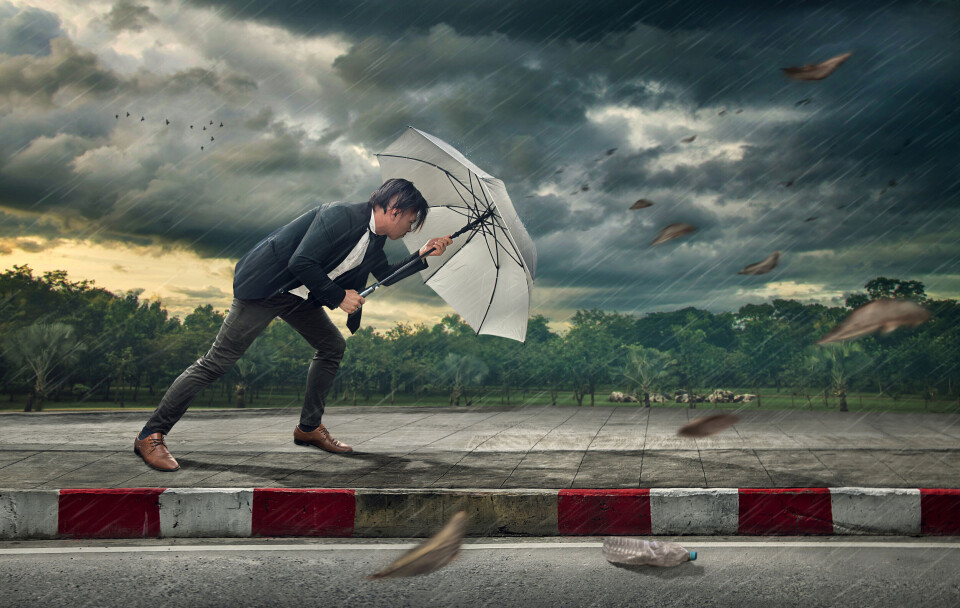-
La Voie Bleue: European Cycle Route of the Year is in France
700km bike path linking Luxembourg and Lyon has been crowned winner of the 2026 title
-
MAP: See how your location in France affects online food shop prices
New analysis shows how your shop compares on average
-
Further sightings of processionary caterpillars in France prompt action from local authorities
Caterpillars have arrived early after mild winter
France storms: What to do (and what not to do) to stay safe
Should you shelter under a tree in a lightning storm or open the car windows if caught in a flood? We look at expert advice on what to do during major storms

France has faced a week of severe storms including thunder and lightning, hail storms, flash floods and major gales.
These storms can be dangerous – three people have been reported killed on the island of Corsica after sudden strong winds hit the island today (August 18).
Read more: Hail, floods, 224km/h winds: Three die as storms batter France
Read more: Girl of 13 among three killed as surprise storms batter Corsica
Here, we share the advice of French emergency services professionals on what to do and not do if you are caught in a storm.
Protection against lightning storms
Around six million lightning strikes hit France every year, and around 200 people are struck by them. Around 10% of these people die from their injuries, while 70% of survivors are left with severe after-effects.
On Wednesday night alone (August 17), 20,000 lightning strikes were recorded by Météo-France around France, including 5,000 in the region of Provence-Alpes-Côte d'Azur alone.
Below is advice from firefighters and medical professionals on what you should do in a lightning storm.
- Try to find shelter inside, wherever you are. This can be a house, shop, café, etc. Once inside, close the doors and windows
- Cars can also provide safety from lightning storms
- If you cannot get inside, it is recommended not to run as it can attract lightning
- If you are outside, crouching, sitting or lying down is better than standing. Space yourself out from other people. Cover yourself with insulating material if possible – plastic sheets, backpacks, etc.
- If you are outside, avoid sheltering under trees or pylons
- If you are outside, do not use umbrellas
- If you are out walking on a mountain, avoid peaks, avoid standing near metal objects, avoid touching rock faces, crouching is better than standing, try to find shelter
- If you are in the sea, leave immediately
If your property has been affected by damage from lightning, you can pay for a special certificate given out by France’s national meteorological service, Météo-France, that can be given to insurers and provides proof there was lightning in your area.
Read more about claiming storm damage in our article here, and find Météo-France’s lightning certificate (attestation de foudroiement) at this link. This certificate costs €61.
Protection against floods
Flooding is also a regular problem that follows large storms. Below is advice from firefighters and medical experts on what to do if you are caught in a flood or under heavy rain.
- Avoid cellars or underground car parks
- Stay away from rivers, canals or other bodies of water
- Stay inside or on high ground if possible
- Avoid travelling unless absolutely necessary
The driving safety association Prévention routière states that just 30cm of water is sufficient to lift a car and carry it.
Ostiante-Decanis, head of the Service Départemental d'Incendie et de Secours (SDIS) in the department of Bouches-du-Rhône, gives the following advice:
“Do not drive during these times, postpone travel, stay away from waterways, do not park on banks or bridges, do not drive or walk on flooded paths, even ones that are only partially flooded.”
If you happen to find yourself in a vehicle in a street that starts to flood, you should open the windows.
“The first thing to do in this type of situation, even if it is counter-intuitive, is to open all the windows of the vehicle because, in order to be able to open the door, there has to be pressure both inside and outside the vehicle", said Jean-Marc Sicard, firefighter and member of the SDIS in the Var.
Read more: Vehicles, homes: claiming compensation for weather damage in France
Prepare a safety kit
The Var préfecture recommends people who are living in storm-prone areas to prepare a storm safety kit, just in case.
This can include (if necessary to your situation):
- Radio and torches with spare batteries
- Candles, lighters or matches
- Non-perishable food and drinking water
- Medicines
- Warm clothing
- Duplicate house keys
- Copy of identity documents
- First aid kit
- Cash
- Mobile phone charger
- Baby items
- Pet food
#Prévention | Les orages qui ont traversé le #Var ce matin et qui vont se réactiver cet après-midi montrent la violence des phénomènes météo.
— Préfet du Var (@Prefet83) August 17, 2022
🧰 Pour faire face à toute situation d'urgence, préparez votre kit de sécurité ⤵
➕ d'infos 👉 https://t.co/vnTdXdlLCF pic.twitter.com/7L0wl8jajj
Related articles
We must prepare homes now for flash floods, says French fire chief
June flooding and mudslides recognised as natural disasters in France
Orange weather alerts remain as storms cause flooding in France
























